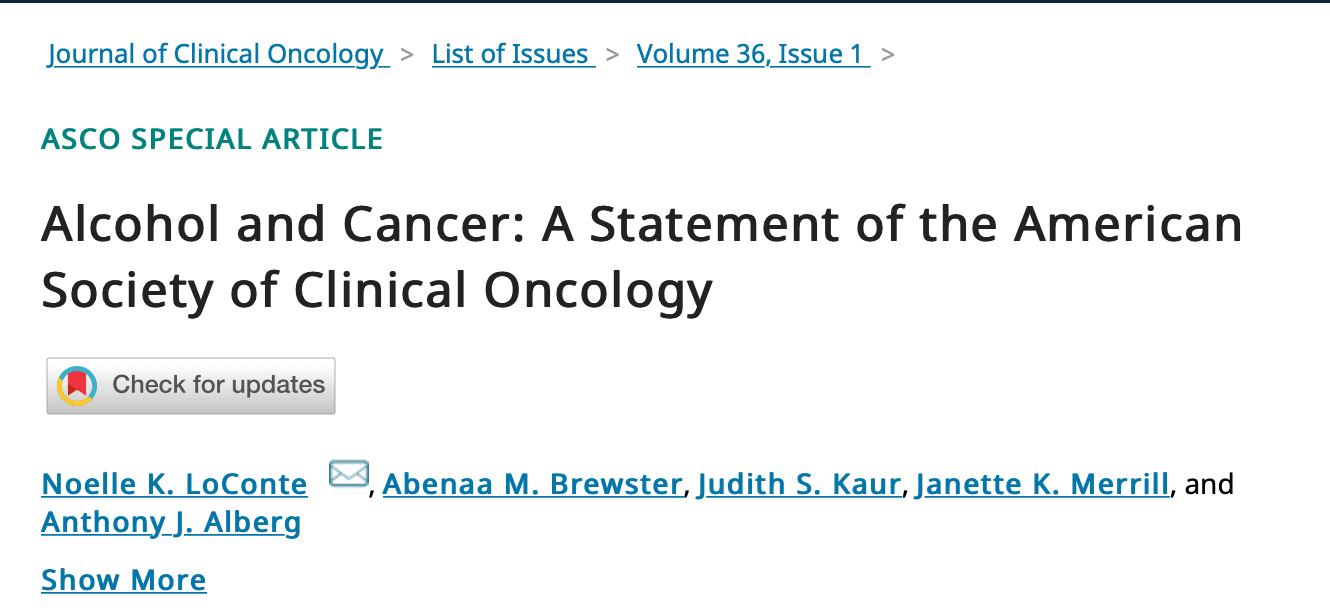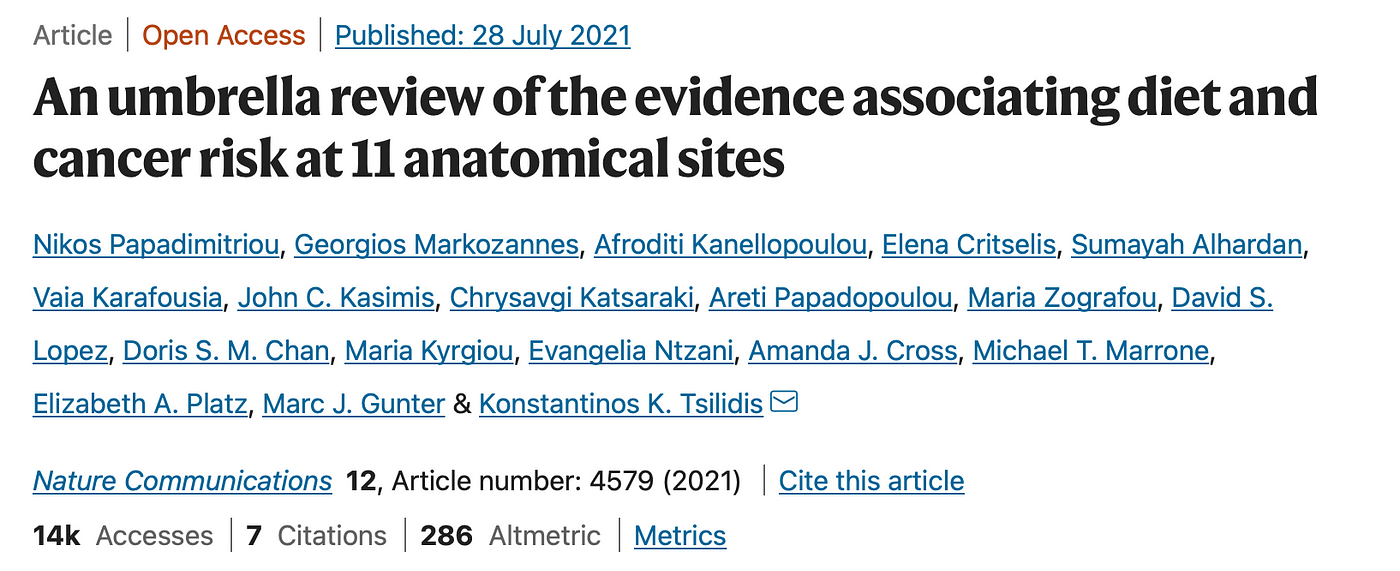A review of the week’s plant-based nutrition news 13th March 2022
This week is dedicated to the topic of alcohol. There is consensus that the safest amount to drink is zero. I end with a reminder about the actions we can each take to reduce our personal impact on climate change.

HOW MUCH HARM DOES ALCOHOL CONSUMPTION CAUSE? This analysis published in 2018 is the most recent report from the Global Burden of Disease Study. It found that that in 2016, alcohol consumption was the 7th leading risk factor for both death and disability, accounting for 2.8 million deaths globally. Alcohol consumption accounted for 2·2% of female deaths and 6·8% of male deaths. Among the population aged 15–49 years, alcohol use was the leading risk factor globally, with 3·8% of female deaths and 12·2% of male deaths attributable to alcohol use. For people aged 50 years and older, cancers accounted for a large proportion of deaths caused by alcohol, about a quarter of all alcohol attributable deaths.
The study also considered the extent to which moderate levels of consumption may be protective for some health conditions. The data here are conflicting due to the impact of other confounding factors. Based on their analysis, the authors conclude that any estimated protective effects for ischaemic heart disease and diabetes are offset by the increased risk of cancer. The study conclusions are clear and unambiguous. Alcohol consumption is a huge global health issue and small reductions in health-related harms at low levels of alcohol intake are outweighed by the increased risk of other health-related harms, including cancer. Thus, the authors state that ‘The level of alcohol consumption that minimised harm across health outcomes was zero’.
The World Health Organisation (WHO) has outlined actions required to reduce the harm caused by alcohol globally.
- regulating the marketing of alcoholic beverages (in particular to younger people);
- regulating and restricting the availability of alcohol;
- enacting appropriate drink-driving policies;
- reducing demand through taxation and pricing mechanisms;
- raising awareness of public health problems caused by harmful use of alcohol and ensuring support for effective alcohol policies;
- providing accessible and affordable treatment for people with alcohol-use disorders;
- implementing screening and brief interventions programmes for hazardous and harmful drinking in health services.

CANCER AND ALCOHOL: The major disease-related risk associated with alcohol consumption is an increased risk of cancer. Alcohol consumption accounts for 5–6% of all cancers globally. In 2018, the American Society of Clinical Oncology published a statement raising awareness of this important issue with a call to action directed at governments, health organisations, policy makers and oncologists.
The WHO has classified alcohol as a group 1 carcinogen i.e. it is a direct cause of cancer. The International Agency for Research on Cancer (IARC), a branch of WHO, has assessed the evidence and concluded that alcohol is a cause of cancers of the oral cavity, pharynx, larynx, oesophagus, colorectum, liver and female breast. The more a person drinks, and the longer the period of time, the greater their risk of development of cancer, especially head and neck cancers. The associations between alcohol drinking and cancer risk have been observed consistently regardless of the specific type of alcoholic drink consumed. Even one drink per day or less increases the risk of oesophageal, oropharyngeal and breast cancer. Thus, the IARC states, ‘for cancer prevention, it’s best not to drink alcohol’.
A key question is whether the risk of developing an alcohol-associated cancer is reduced after one stops drinking alcohol. For upper aerodigestive tract cancers the risk declines in those who stop drinking alcohol. The evidence from studies suggests that the risk of cancer may be reduced to that seen in never drinkers after long-term (≥ 20 years) cessation from alcohol drinking. Unfortunately, there are limited data on the impact of alcohol cessation on the risk of other alcohol-related cancers.
Alcohol consumption after a diagnosis of cancer is likely to negatively impacts cancer outcomes and also increases the risk of second cancers. However, studies looking into this area of research are limited and more data would be useful.
Mechanisms by which alcohol is thought to cause cancer are many and include•Ethanol and its metabolite acetaldehyde can damage DNA and protein•Generation of reactive oxygen species which damages DNA, proteins & lipids •Impaired nutrient absorption (vitamin A, C, D, E, B complex, folate and carotenoids)•Increase in blood oestrogen levels•Alcohol acts as a solvent and increases the uptake of carcinogens into cells•Alters the gut microbiome•May shorten telomere length•Affects gene expression through epigenetic modification•Interacts synergistically with tobacco.

MORE DATA ON CANCER AND ALCOHOL: This very recent study summarises a huge body of data on diet and cancer, including alcohol consumption. 860 meta-anlayses were included. Strong evidence was found for the association between alcohol consumption and risk of breast and colorectal cancer and highly suggestive evidence for the association between alcohol consumption and the higher risk of oesophageal, head and neck, and liver cancers.

ALCOHOL DOES NOT BENEFIT HEART HEALTH. It is refreshing to finally have an honest, evidence-based assessment of the impact of alcohol consumption on cardiovascular health. Over the last few decades, researchers, the alcohol industry and the media have supported the erroneous message that alcohol consumption, in moderation, is beneficial for heart health. Yet the reality is that during this same time period the prevalence of cardiovascular disease has actually doubled and alcohol has directly contributed to the increasing burden of these diseases (hypertensive heart disease, cardiomyopathy, atrial fibrillation and flutter, and stroke). In addition, alcohol consumption has contributed to deaths from infectious diseases, injuries, digestive diseases and cancer.
This report from the World Heart Federation summarises that in 2019, 2.4 million deaths were attributable to alcohol consumption. It states that contrary to popular belief, alcohol is not good for the heart. The report also highlights the fact that alcohol exhibits socio-economic inequity. Individuals with low socio-economic status experience a disproportionately greater alcohol-associated harm than individuals with high socio-economic status from similar or lower amounts of alcohol consumption. ‘Recent evidence has found that no level of alcohol consumption is safe for health. Alcohol consumption negatively affects mental and physical health and is also linked with poorer quality of life and poverty. Even in smaller quantities, alcohol consumption can increase the risk of breast cancer. It can cause more severe motor and cognitive dysfunction in women at much lower levels of consumption than men’.
The report highlights the impact of the alcohol industry on perpetuating the myth that alcohol consumption can be healthy stating ‘this interference by the alcohol industry closely reflects the universally vilified activities of tobacco companies’.
The report is a call to action for health professionals, health organisations, policy makers and governments to join forces to stop the immense harm caused by alcohol consumption. Preventing harm starts with being clear about the fact that there is no safe level of consumption.

ALCOHOL AND BRAIN HEALTH: The latest study to show harm from alcohol consumption, this time for brain health. We have known for a while that alcohol consumption can cause shrinkage of the brain, especially if there are underlying health conditions and associated with other unhealthy lifestyle behaviours. Even though some of the longest lived population in the world in regions known as the Blue Zones may consume some alcohol, usually red wine, their better health outcomes are not because of the alcohol but in spite of the alcohol and rather due to their overall healthy diet and lifestyle.
In the current study, researchers analysed data from 36,678 generally healthy middle-aged and older adults from the UK Biobank study. They investigated the association between alcohol consumption and brain imaging (MRI) data. The results showed an association between drinking alcohol and reduced brain volume that began at an average consumption of less than one alcohol unit a day and with a dose-response relationship; the more you drink the greater the reduction in brain volume. Going from one to two drinks a day was associated with changes in the brain equivalent to ageing two years. Going from zero to a daily average of one alcohol unit was associated with the equivalent of a half a year of ageing, the difference between zero and four drinks was more than 10 years of ageing.
So once again, when it come to brain health, the safest level of alcohol consumption is zero.

PERSONAL ACTIONS TO TAKE TO FIGHT CLIMATE CHANGE: Last week I reported on the latest IPCC report on climate change, which did not make for happy reading. The climate crisis is worsening and we have even less time to turn things around. However, we can all try to take personal action to limit our own carbon footprint. This report from the University of Leeds and C40 cities provided evidence for this. The six most impactful actions are:
- Eat a largely plant-based diet, with healthy portions and no waste
- Buy no more than three new items of clothing per year
- Keep electrical products for at least seven years
- Take no more than one short haul flight every three years and one long haul flight every eight years
- Get rid of personal motor vehicles if you can — and if not keep hold of your existing vehicle for longer
- Make at least one life shift to nudge the system, like moving to a green energy provider, insulating your home or changing pension supplier
The Jump campaign are challenging citizens to start taking these actions so do check out their resources.
Please follow my organisation ‘plant-based health professionals UK’ on Instagram @plantbasedhealthprofessionals and facebook. You can support our work by joining as a member or making a donation via the website.
